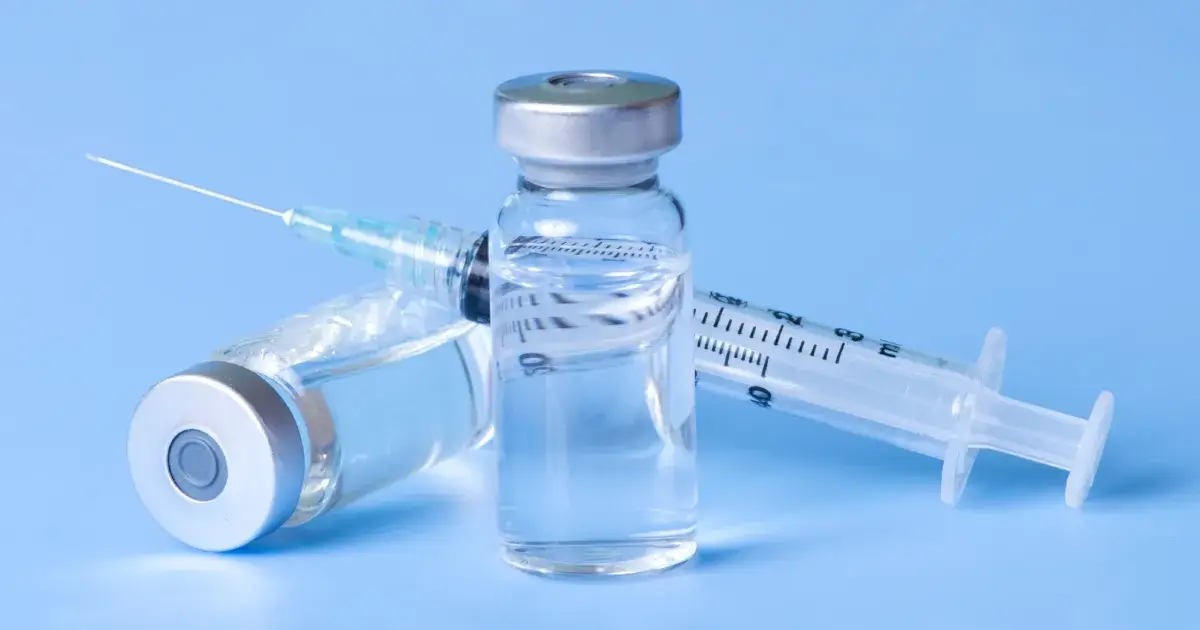Table of Contents
Peptide therapy is frequently marketed as an intervention for anti-aging by medical offices. Among the numerous benefits of peptides is their ability to help boost hormone levels. Peptides are short chains of amino acids that connect and send signals throughout our bodies to activate and deactivate various functions.
Peptide treatment is utilized to assist in improving the functionality of our bodies. It would be a shame if the potential for other amazing benefits that peptides could offer were not investigated. Let’s know more about Peptide therapy as more study is carried out on peptides and their potential applications.
What is meant by Hormone Replacement Therapy?
Hormone replacement therapy, also known as HRT, is a treatment option for men and women with low levels of testosterone, progesterone, and estrogen. Both men and women can experience a reduction in their hormone levels as a result of the effects of aging.
Estrogen replacement therapy (HRT) and hormone replacement therapy (HRT) for progesterone and testosterone may be part of the hormonal treatment plan for women. When it comes to hormone replacement therapy (HRT), men typically just receive testosterone, HCG, and maybe an estrogen blocker. Tablets, injections, gels, and creams can all be used as hormone replacement therapy (HRT) forms.
Human growth hormone (HGH) and other peptides, such as ipamorelin and sermorelin, are two examples of potential additional hormone therapy that could be used for either men or women. The hormone human growth hormone (HGH) and stimulation peptides both play a part in the processes of cell reproduction as well as cell regeneration.
Ipamorelin and sermorelin are both types of peptides that have the potential to enhance the HRT routine of a patient. Ipamorelin resembles the hormone ghrelin in order to increase the growth hormone, whereas sermorelin enhances the development and secretion of hormones such as HGH and testosterone.
Hormone Replacement Therapy’s Next Big Thing
Peptide therapy is an innovative, cutting-edge healthcare technique that employs precise amino acid sequences named “peptides” that, when handled appropriately, keep in touch with various areas of the body.
To this day, nearly 7,000 naturally present peptides have been isolated and characterized. It is currently observed that Peptide Therapy is getting more reputation among physicians because these peptides are quite particular in the activity that they perform and are very effective. Peptides are often very well accepted and highly safe to use because the body produces most of them naturally. Therefore, this makes them a good source of natural medicine.
5 Things You Ought To Be Aware Of Concerning Peptide Therapy
In order to gain a deeper comprehension of peptide therapy, the following four facts are essential:
The Future Is Bright For Peptide Therapy
Although research on peptides is regarded as a relatively recent topic of study, over 7,000 different peptides have been found and are currently the subject of additional research and investigation. Peptides might be able to provide a significant therapeutic possibility, which would help in the regeneration and repair of our internal bodies, as well as in the treatment of anti-aging and improvement of natural body activities.
Peptides Do Not Pose Any Health Risks.
Peptides employed in peptide therapy are either an exact replica or a close relative of the proteins and peptides already present in our bodies and are used by them naturally. In spite of the fact that a large portion of these peptides is the product of synthetics, they serve the same purposes as their naturally occurring counterparts.
Synthetic and natural peptides in our systems have many similarities, making it possible to give clients safe and predictable results. The majority of peptides are broken down through the processes of the dipeptidyl peptidase enzyme pathway. The potential for these peptides to create adverse effects over the long term is considerably reduced by the fact that they do not interfere with typical biological processes.
Peptides Are Very Specific And Effective
Because of their selectivity, peptides are able to target particular cell types and mimic the natural signals produced by the body without producing any disturbances or unanticipated reactions.
The unique peptides are able to cure very particular conditions. For instance, an active peptide that treats heart tissue will only work on the heart muscle and will not create any cross-reactivity with other body parts. This enables very effective treatments to be administered to the body because the outcomes are both predictable and safe.
Oral Administration Of Peptide Therapy Is Not Yet Available
The vast majority of peptide therapy treatments call for the administration of peptides through the use of subcutaneous injections. Due to the fact that the peptides are of tiny size, they may be administered using insulin syringes of a comparable size, which results in a small amount of discomfort throughout the process.
Peptide therapy can be taken orally or administered intravenously, but you can anticipate restricted absorption and reduced effectiveness. The peptides will be shielded from digestive enzymes that would swiftly target and destroy them if taken as injections rather than eaten.
In the not-too-distant future, certain peptides may be made available for oral consumption in addition to other forms, such as inhalers and lozenges.
It is possible to determine whether or not hormone treatment is an acceptable therapeutic option for you by having a conversation with your physician about the exact symptoms you are experiencing as well as the risks that could be posed to your health. Maintaining an active conversation should be a priority for you during the menopausal transition years.
As researchers gather more information on hormone therapy and the numerous other treatments available for menopause, the guidelines may be subject to change. If the effects of menopause continue to affect you, you should consult your doctor regularly to discuss the many available treatment options.
If you are interested in discussing Hormone Replacement Therapy(HRT) in Atlanta, GA, and Beverly Hills, CA, Schedule an appointment at Gentle Giant Care.






